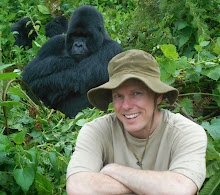
It's been a hundred days in the Gulf since the Deepwater rig blew, and delta tidal flats are bared and then buried by the lunar sequence, much as they ever were. Of course, progress has left an indelible mark this time, and the ecology changes, continues to evolve. There is an issue regarding impact, one of long-term consequence. There is the matter of message, a question of what we have learned.
In southern Louisiana and along the Gulf coast, an oil spill is a shame for lots of reasons: it makes seafood inedible, kills some of the fun of a fishing trip, a day at the beach. It makes people less likely to get in their cars in the first place and drive down for summertime vacations. It also kills birds and marine life, something that flips a switch in many of us, tickling some intrinsic recess of our mind where we still strive for a balance, for a oneness with mother nature.
The years ahead will see research and debate, occasional media reports addressing environmental impact. They will also see the extraction of oil at a record pace, more next year than now, more of it to satisfy the needs of more and more men, the wants of more and more women. Wether we've reached a peak or not, we'll continue unabashed to burn oil for many moons. The skies will brown, the atmosphere sicken. There will be hotter summers and colder winters. There will be horrific storms and skin cancers. But life will adapt and find its way. Some will get trampled, others will seek higher ground.
From slip one in Tiger Pass, I see media vans and reporters--they no longer warrant much attention. I still see Greenpeace from time to time and other environmental activists. I still listen to them on "The Think Tank", Garland Robinette's local FM coverage and debate. Today one activist discusses the methods of his movement, the acceptance of minor victories. It sounds like he's signed on to one of our two big political parties, and he's got to make a pitch for his team. "Putting solar panels on every roof isn't the answer," he says. "We know that." He makes excuses for the lack of progress, he justifies political expediency.
We can blame the media, the government, the corporations. We can call it propaganda if we like, but popular belief--conventional wisdom--maintains that there is no alternative to oil. That may even be true. Solar panels are overly expensive and don't make economic sense. Windmills need costly maintenance and frequently break down. Batteries require lots of energy to produce. Nuclear energy is passe and creates an unseemly byproduct. Whatever's wrong with geothermal, I forget.
The reduction of biodiversity is a slow process, and the ultimate demise of life on the planet won't happen overnight. It's going to be a long, arduous task, a slow train to shitsville. It won't happen in 100 days, not in a thousand years. Life will exist on earth until its sucked into the sun, but that life will have to deal with the consequences of the human explosion and the quest for more.






